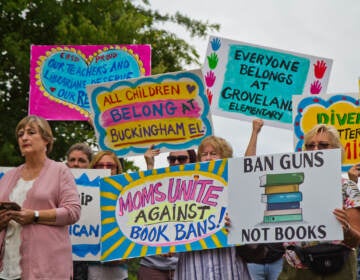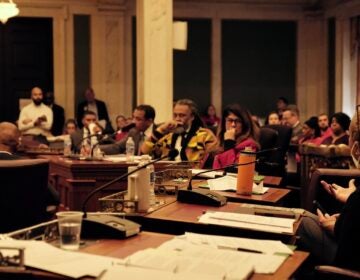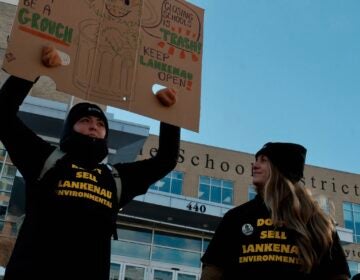‘A fascist approach to education’: Acclaimed local authors react to Central Bucks School District’s book policies
Local authors fear Central Bucks School District’s new book policies will censor LGBTQ content.
Listen 6:03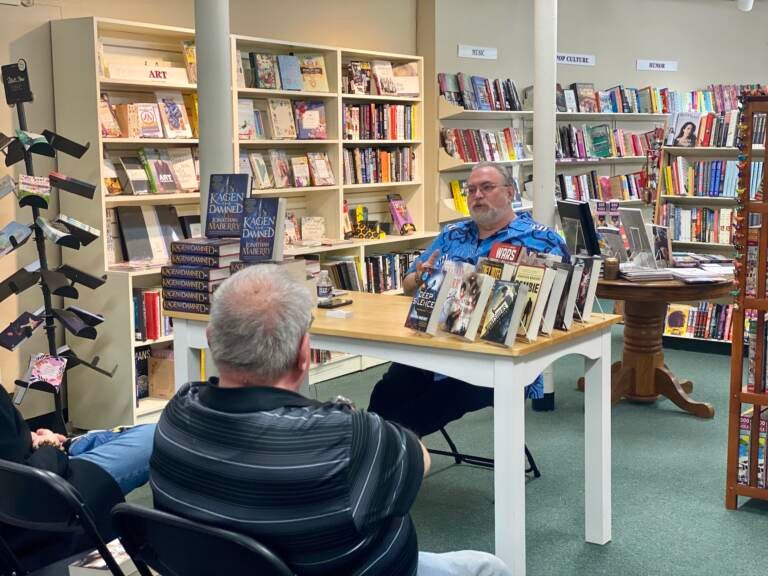
Jonathan Maberry is a distinguished author of many novels, including the young adult series Rot & Ruin. He lived in Warrington, Bucks County for 12 years. (Doylestown Bookshop)
Got a question about life in Philly’s suburbs? Our suburban reporters want to hear from you! Ask us a question or send an idea for a story you think we should cover.
Bucks County was once known as the “genius belt.”
Nationally and internationally acclaimed writers and activists called the county home. Pearl S. Buck, the first American woman to win the Nobel Prize in Literature and an activist for women’s rights and racial equality, lived in Perkasie. Patricia Highsmith, who is credited with writing the first lesbian novel with a happy ending, lived in New Hope in the 1960s and left money to the town library when she died. Dorothy Parker, who wrote a popular column in “The New Yorker” and helped form the Hollywood Anti-Nazi League, lived in Tinicum Township in the 1940s.
Now the county is garnering national attention for its largest school district, Central Bucks, adopting policies that many view as book bans. A new group of local authors is paying attention.
Central Bucks passed a library book policy last month that would have the superintendent or his unidentified “superintendent’s designees” review books before they hit the shelves, using vague criteria like “inappropriate” and “sexualized content.” Many community members fear the policy targets LGBTQ-related content.
Pennridge School District is considering the same policy — and another that could take censorship even further. The new policy would limit what students share with each other. The legal director of ACLU Pennsylvania said it goes “way further” than anything he’s seen before.
The local authors noted Bucks County’s history and said it’s painful to see schools in Bucks County take on literary censorship.
WHYY News spoke to six local authors with deep ties to Bucks County and the Philadelphia suburbs. Their comments follow.
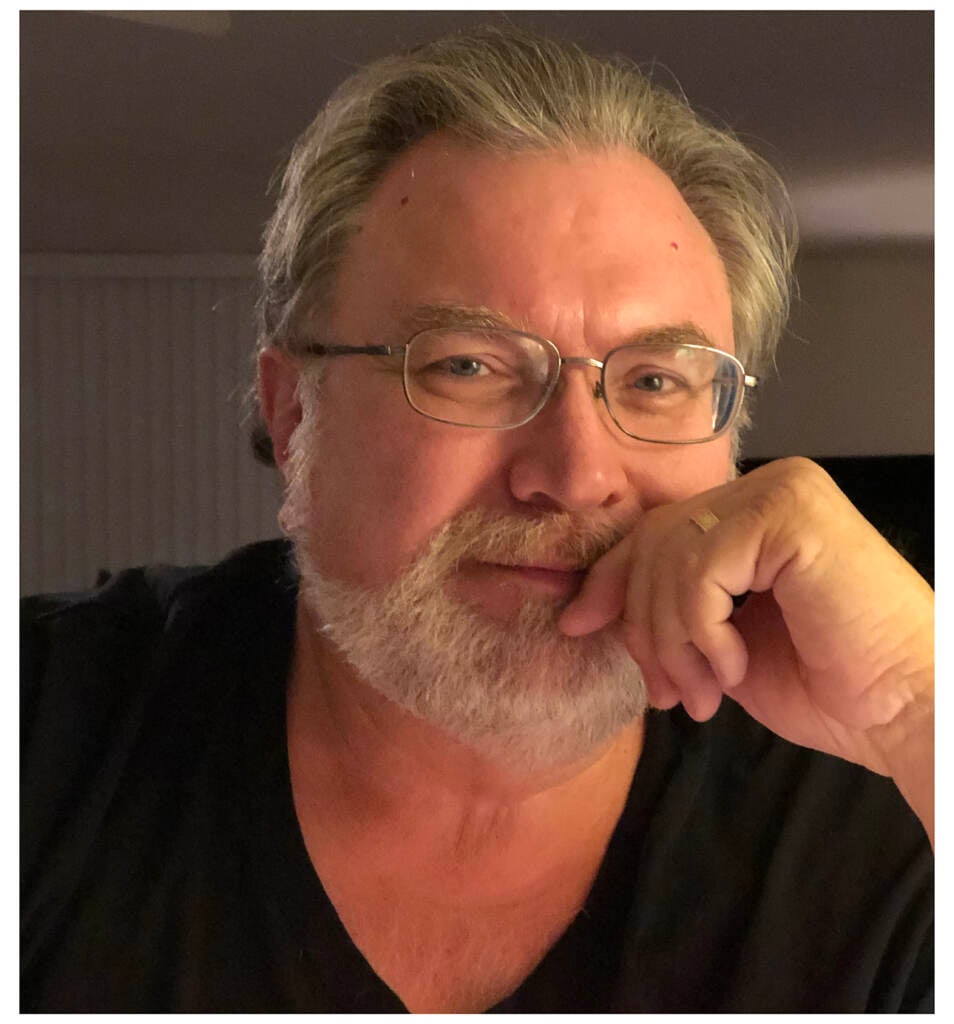
Jonathan Maberry lived in Warrington, Bucks County, for 12 years.
“What all of this does, it takes so much trust away from the ability of kids to make rational decisions for themselves, which they are capable of doing. And it forces them to be in lockstep with one particular ideological view… that is a fascist approach to education”
Maberry grew up in Kensington, Philadelphia, and over the last 12 years, organized meetings for writers in Doylestown, Bucks County. He’s the author of internationally acclaimed novels, including the young adult series “Rot & Ruin” and “Black Panther: Doomwar.”
Maberry saw Doylestown flourish as a center for the arts, especially for writers, who “were offering passports to different ideologies, different worldviews, different states of being that made that whole area nationally, internationally respected as a center of the arts,” he said.
“And to see that changed, to become the antithesis of what we all admired about Bucks County, it’s horrific,” Maberry said. “It’s taking away one of the things that was most admirable about living there and spitting on it.”
The book policies in Bucks County hit a nerve for Maberry especially because he lived through censorship as a child in his Philadelphia household.
Maberry’s father was a member of the KKK, and did not allow him to own books at home.
“He thought they were bad for me, that I’d be getting above myself. But he didn’t have an issue with comics, cause he didn’t respect anything about comics,” Maberry said. “I never stopped reading. I just wasn’t visibly reading at home.”
When Maberry got his hands on an issue of “Black Panther,” his father ripped it up.
“I bought a new copy and took it to school and asked my librarian about it. And she said, well, this particular issue was about apartheid. And I’m like, What’s that? That started the conversation … The most important person in my entire life was a librarian, a middle school librarian. My eyes were opened to the realities of intolerance and the benefits of inclusion that I would never have known had a librarian not given me books to read.”

Stephanie Feldman lives in Upper Dublin, in Montgomery County.
“What are we protecting these kids from? A lot of these kids are LGBTQ… And how are their own lives inappropriate for them to read about?”
Feldman grew up in Philadelphia and now lives with her family in Upper Dublin. She’s an award-winning author of two novels, “The Angel of Losses,” and soon-to-be-released Saturnalia, which involve fantasy and horror.
“To live in an atmosphere of persecution is chilling for all of us,” Feldman said. “It’s chilling for us as individuals trying to live our lives and think freely and imagine freely… It’s bad for society. It’s bad for our souls.”
She said she worries the library policy would especially affect already marginalized groups:
“Sexualized content is a vague term that can be weaponized against identities. You can take anything by a gay or queer author and call it sexual content. I mean, this is what we’ve seen happen.”
Feldman said it’s important for students to cultivate their own communities, fight together for the things they care about, and have fun in the process.
“We think of hope as a feeling. But I think it’s a practice and it’s what we do,” Feldman said. “And even if we feel hopeless, we keep working and we keep fighting… and we’re going to lose some battles. Those kids are going to lose some battles…. But being engaged in the fight is a success in itself for them.”
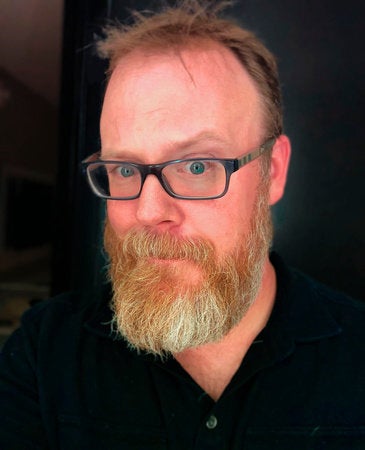
Chuck Wendig lives in Buckingham Township, in the Central Bucks School District.
“By denying people access to those things… the only output is harm. And it’s an oppressive nightmare scenario for us.”
Wendig is a New York Times best-selling novelist and screenwriter. He’s written many books, including the series “Star Wars: Aftermath.” Wendig graduated from Central Bucks district schools and lives in the district with his family.
“You want kids to turn into adults who have as much information as possible before they get there and to understand stuff about themselves… And to take all of that away is going to leave kids making mistakes and feeling shame… No school should be on the vanguard of un-educating our kids,” Wendig said.
Wendig said he hopes students will find ways to express themselves fully.
“Hopefully they’ll find a way to write…. spite can be a powerful motivator. And hopefully, the anger and frustration and protest can find its way into some of that self-expression.”
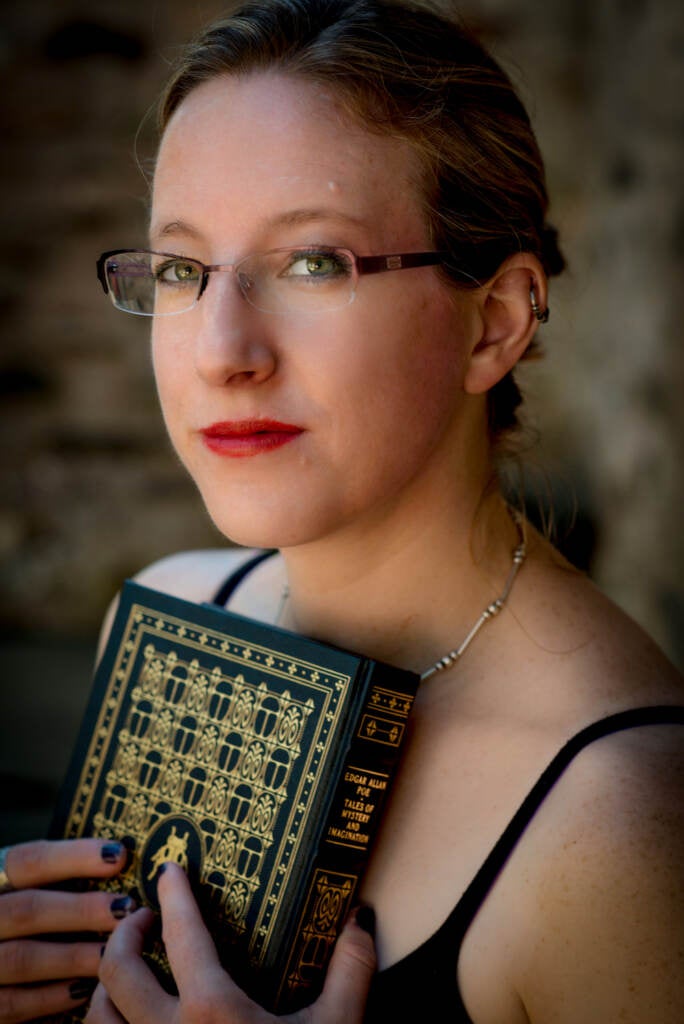
A.C. Wise lives in Downingtown, Chester County.
“So much of science fiction and speculative fiction, at its best, is about showing the possibility of how things could be better.”
Wise has lived in the Philly suburbs for over 15 years. She primarily writes science-fiction, fantasy, and horror. Her first collection is about a group of queer “vigilantes,” a queer chosen family fighting back against “everything,” Wise said.
Wise said she was concerned about an apparent stream of anti-LGBTQ decisions by the Central Bucks School District, including the administration telling teachers to remove Pride flags from their classrooms.
“It becomes more than just about the books,” Wise said. “You’re then, by association, telling these kids that they’re not OK, they’re not right, maybe they should be suppressed.”
Wise said writing science-fiction with diverse characters can be a powerful way of offering hope to marginalized people.
“At its best, when it’s looking forward, it’s saying there is a place for you in the future. You belong here. Your identity is not going to be erased, you’re not going to be left out of these stories,” Wise said.
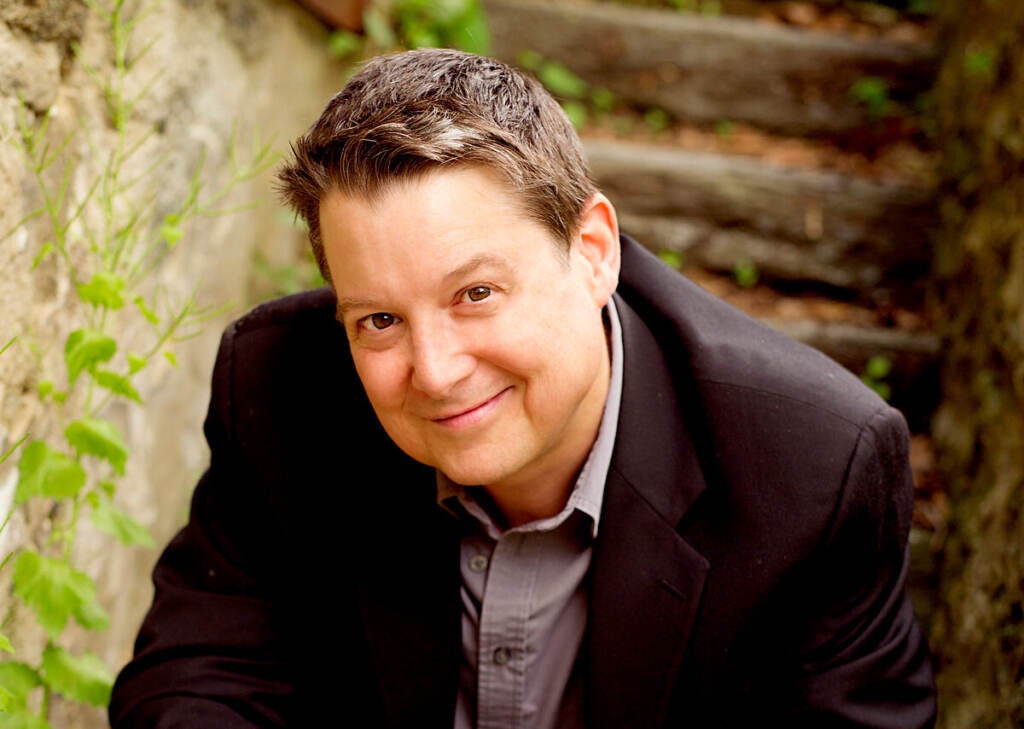
Jon McGoran lives in Cheltenham, Montgomery County.
“This is not the kind of law that would prepare citizens to participate in a democracy. This is the kind of law that would prepare young people to become citizens in an authoritarian state, where they have to be afraid of what they say, they have to be afraid of what they wear, they have to be afraid of what stickers they put on their books.”
McGoran lives in Elkins Park, and is well connected to many Bucks County-based authors. He’s the author of 10 novels for adults and young adults, including the young adult trilogy “Spliced,” which is a near-future science-fiction thriller.
McGoran said science-fiction writers tend to look at current trends, and try to figure out the next logical steps for those trends.
“It does not take a whole lot of extrapolation to go from where we are right now to a society that is barely recognizable and that is truly, truly dystopian,” McGoran said. “It is absolutely within the realm of possibility that things could get much, much worse than they are. And these kinds of laws banning books and banning expression from students… that’s a huge step down that road.”
McGoran criticized the aspect of the Central Bucks’ policy that allows for residents to challenge books on library shelves. After a yet-to-be-determined group of people review that challenge, there’s a chance the book would be removed.
“The way these laws are written, they’re so vague that there could be so many challenges on so many fronts,” McGoran said. “I can totally see it being used to grind operations to a halt, just overwhelming institutions with these gluts of challenges.”
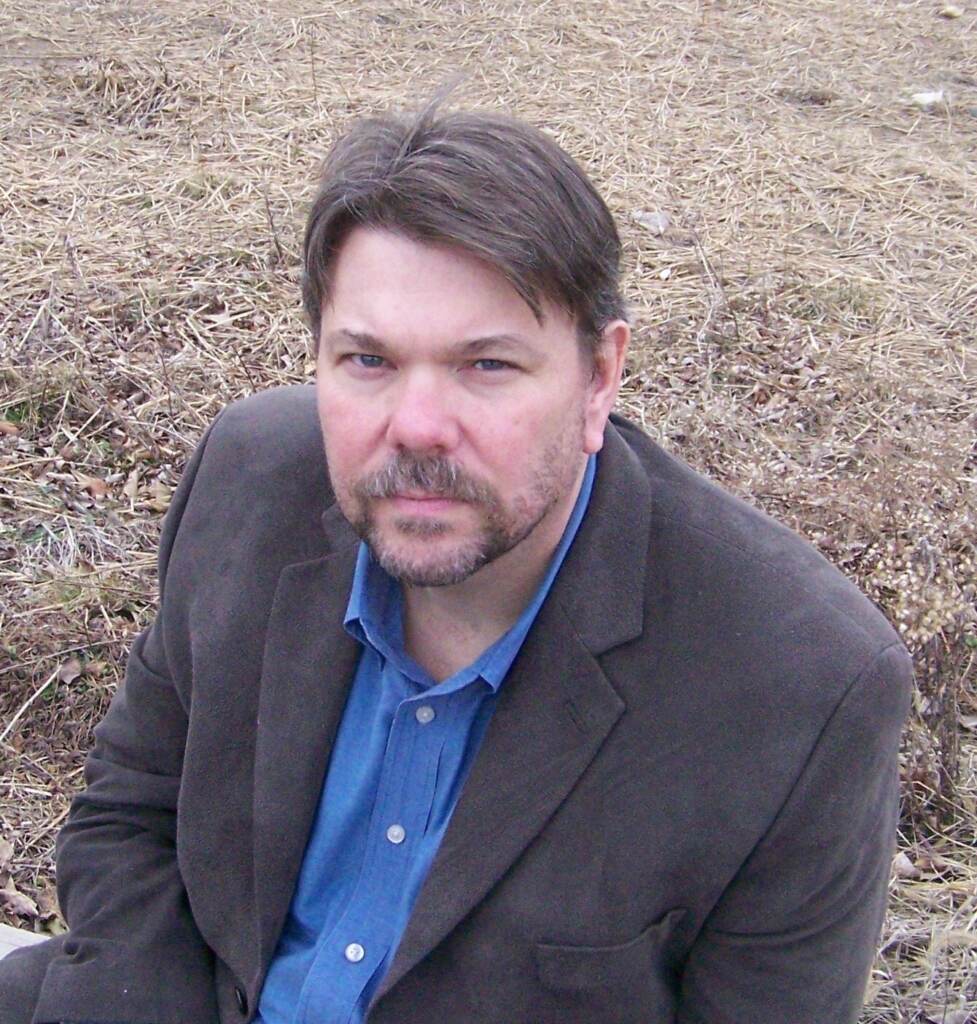
Dennis Tafoya lived in Doylestown, Bucks County, for 40 years.
“It’s all based on controlling things that can’t be controlled… Gay people, transgender people have always been with us and will always be. The only question is how do they survive in the world? And so when you meet people, how open are you to them and their experience?”
Tafoya now lives in Lambertville, New Jersey. When he lived in Doylestown, his kids, one of whom is trans, went to Doyle Elementary in Central Bucks School District. His novel “Dope Thief,” which is set in Philadelphia, is being adapted for a television series.
Tafoya, along with a few of the other authors, shared a pointed bit of advice for students: Read banned books.
“All of the cool people you’re going to meet in your life, they will all read widely and wildly and inappropriately,” Tafoya said. “That’s part of growing up into somebody who is interested and interesting and who has the possibility of really doing some amazing things and making a difference for other people.”
Tafoya said many of the authors from the area are still connected in some way, and are watching how this issue plays out in Bucks County.
“The idea of all of us getting together and trying to help people in Pennridge or help people in Bucks County… I think we would all be 100% open to that,” he said. “Clearly, it’s time.”

Get daily updates from WHYY News!
WHYY is your source for fact-based, in-depth journalism and information. As a nonprofit organization, we rely on financial support from readers like you. Please give today.


